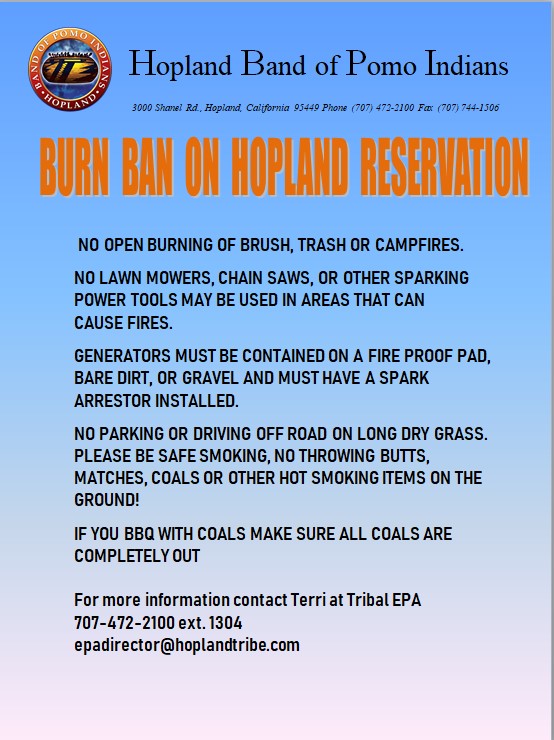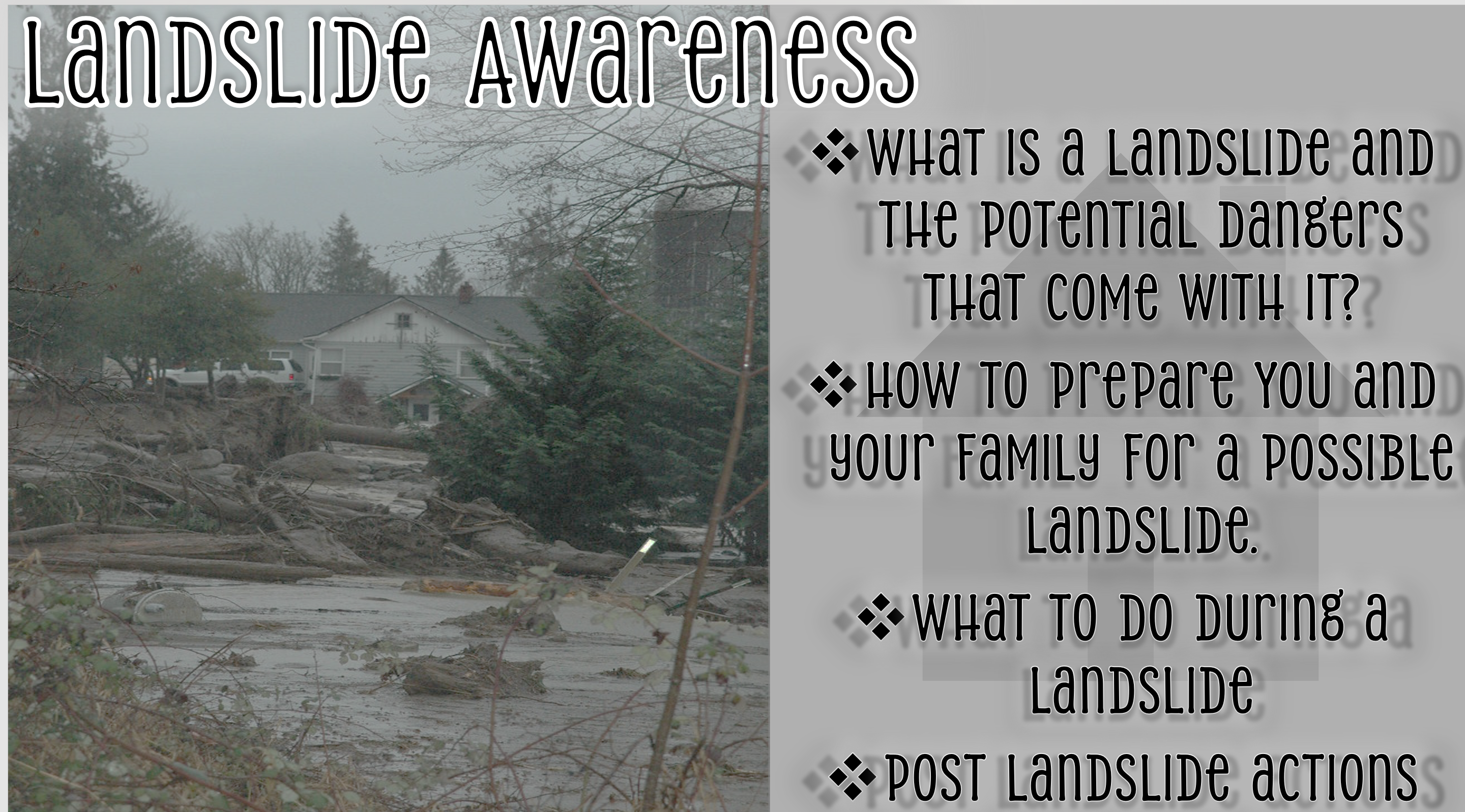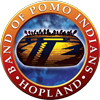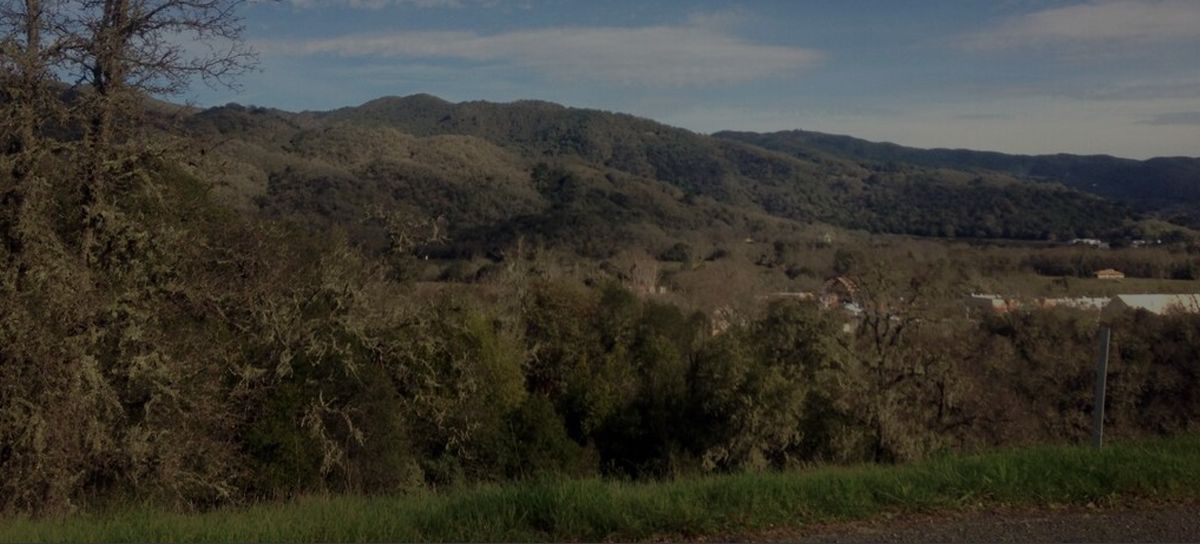Abandoned Vehicles
The ordinance prohibits persons within the Reservation boundary from abandoning vehicles and from keeping abandoned cars, trucks, tires and other parts of vehicles on their property. It does not interfere with residents who have disabled vehicles and who are making genuine efforts to restore the vehicle to running condition.
Illegal Dumping and Open Burning
The ordinance prohibits persons from dumping solid waste and from opening burning on the Reservation. Persons who violate the ordinance are subject to civil fines imposed by the EPA and payment of damages to the Tribe. Persons who use a vehicle to dump waste materials on the Reservation are subject to having their vehicle seized by Tribal law enforcement officials. With respect to open burning there are provisions which allow for ceremonial activities and for agricultural burning (with a permit issued by the Hopland Police Department).
Plant Management and Protection
The ordinance protects native, threatened, endangered, and culturally significant plants within the Reservation boundaries. To protect the significant plants, the ordinance prohibits persons from gathering or destroying such plants without a permit from the EPA. "Recognized gatherers" are exempt and may collect plants as they see fit and without a permit. A "recognized gatherer" is an enrolled member of the Hopland Band, and members of their immediate family or household, who collect plants for personal use.
Tree Management and Protection
The ordinance protects trees on the Reservation from being cut for firewood or otherwise damaged. It does not apply to persons who cut trees on their own homesite for their personal use. Nor does it apply to "recognized gatherers," Tribal members who take parts of culturally significant trees (branches for basketry, acorns, etc.) for personal use. The cutting of trees for firewood without a permit from the EPA would be prohibited, except for those who cut firewood on their own homesite.
Protection of Reservation Water Resources
The ordinance affirms that the Tribe has jurisdiction over all water resources on the Reservation; it protects cultural, ceremonial, religious, fishery, seasonal, residential, and commercial uses of water; ensures adequate supplies of drinking water; and protects water sources from pollution. The EPA protects those resources by prohibiting alteration or destruction in the absence of EPA approval by a permit.
Protection of Cultural Resources
The ordinance protects cultural resources on the Reservation, including human remains, archaeological sites, cemeteries, pottery, basketry, ceremonial objects and other such items of cultural significance to the Tribe. The ordinance prohibits persons from collecting, removing, or harming Tribal cultural resources. The ordinance acknowledges the federal laws which provide some protection for such resources (e.g. The Native Americans Graves Protection and Repatriation Act). The Hopland EPA is the lead agency to secure compliance with the protection of cultural resources under Tribal law.
Pesticide Management and Control
The ordinance protects against unauthorized use on the Reservation of pesticides which may harm people, plants, air, water resources, and other Tribal assets. The Tribal EPA is assigned primary responsibility for developing and implementing a pesticide management program. Permits will be required for commercial pesticide use on the Reservation.
Burn Ban on Hopland Tribe Reservation

 Powerpoint Presentation
Powerpoint Presentation

